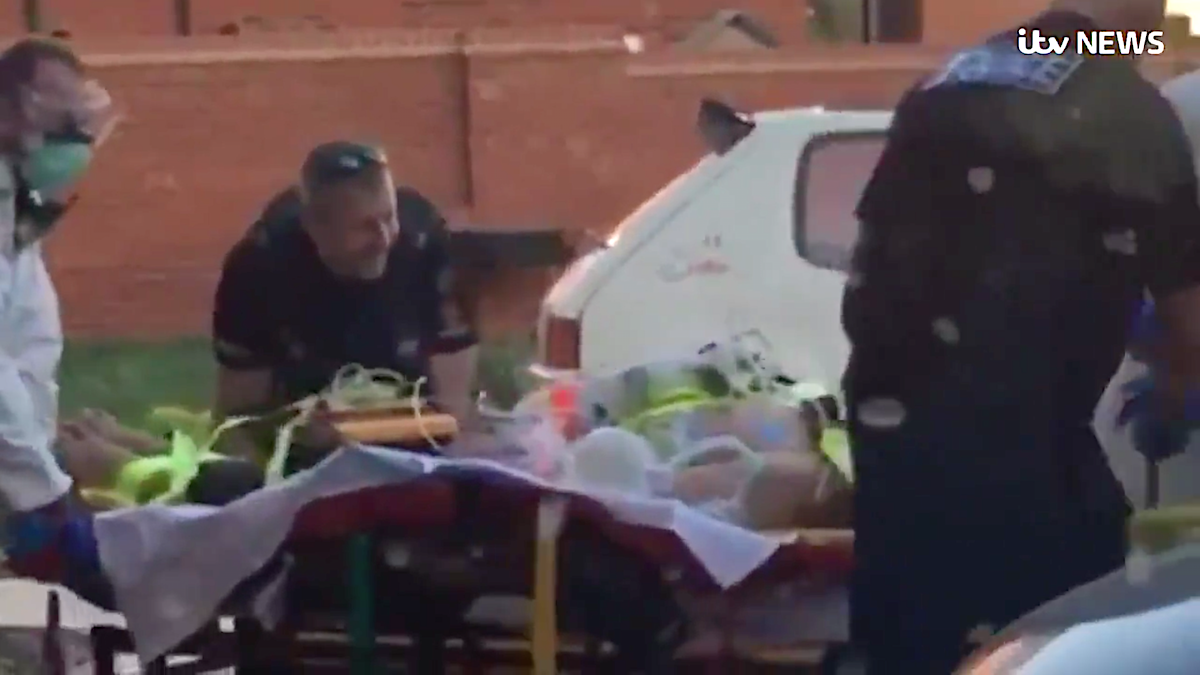- A British couple is critically ill after being exposed to the Novichok nerve agent.
- The nerve agent was also used in the attempted assassination of the former Russian spy Sergei Skripal in March.
- Investigators believe the victims of the latest poisoning came into contact with discarded items from the Skripal attack.
- As such, they appear to be collateral damage rather than fresh targets.
The poisoning of a British couple in provincial England is most likely collateral damage from the attempted assassination of the former Russian spy Sergei Skripal, experts have said.
The couple, identified by British media as Dawn Sturgess, 44, and Charles Rowley, 45, were poisoned with the nerve agent Novichok, the police said on Wednesday night.
Investigators believe that the two came into contact with the substance accidentally, according to a British government minister – potentially after it had been discarded by the would-be assassins targeting Skripal.
A highly toxic Soviet-developed nerve agent, Novichok poisoned Skripal and his daughter, Yulia, in England in March.
Counter-terrorism police are working with officers in Wiltshire investigating a 'major incident' that left a couple critically ill
The man and woman both in their 40s have been named by friends as Charlie Rowley and Dawn Sturgess https://t.co/9wbx5e948D pic.twitter.com/S1vmpywWen
— The Telegraph (@Telegraph) July 4, 2018
Sturgess and Rowley are in critical condition after being found badly ill in Amesbury, 7 miles from Salisbury, where the Skripals were poisoned.
They are being treated in Salisbury District Hospital, the same place where the Skripals were treated.
It is not clear how Sturgess and Rowley came into contact with the nerve agent.
BBC Radio 4's "Today" program reported Thursday morning that investigators thought the most likely way the two were poisoned was by coming into contact with a discarded item from the previous attack.
Ben Wallace, the UK's security minister, appeared to support the conclusion, telling the same program:
"The working assumption is that these were victims of either the consequence of the previous attack or something else but not that they were directly targeted.
"That could change. The police are working and uncovering evidence as they go, and that is biggest challenge of all of this.
"We don't know everything that happened before, during, and after the attempted murder of the Skripals."

Gordon Corera, the BBC's respected security correspondent, said, "The most likely hypothesis is that this is leftover Novichok from the attack on the Skripals back in March."
He also told the "Today" program: "Perhaps some of the actual items used by the attacker, which were then discarded - perhaps in the park, perhaps somewhere else - were left untouched for a period of time and then picked up by this couple who handled it or used it in some way, which might have led to them falling seriously ill."
Footage published by ITV News showed Rowley being taken onto an ambulance by paramedics dressed in protective suits.
Video emerges of a man - exposed to a mystery substance in Wiltshire - being taken into an ambulance. Counter-terrorism police are investigating the incidenthttps://t.co/BcOgAEeBlY pic.twitter.com/ar9cMOCCtq
— ITV News (@itvnews) July 4, 2018
As a precaution, the British government has warned people not to pick up discarded objects in Salisbury.
The UK accused Russia of being behind the Skripal attack, prompting the biggest Western expulsion of Russian diplomats since the Cold War. Russia has continually denied the claim, and it did so again Thursday morning.
Sergei and Yulia Skripal were taken into critical condition on March 4, when they were found. Sergei Skripal was taken out of critical condition on April 6 but remains in the hospital. His daughter was discharged April 10.

